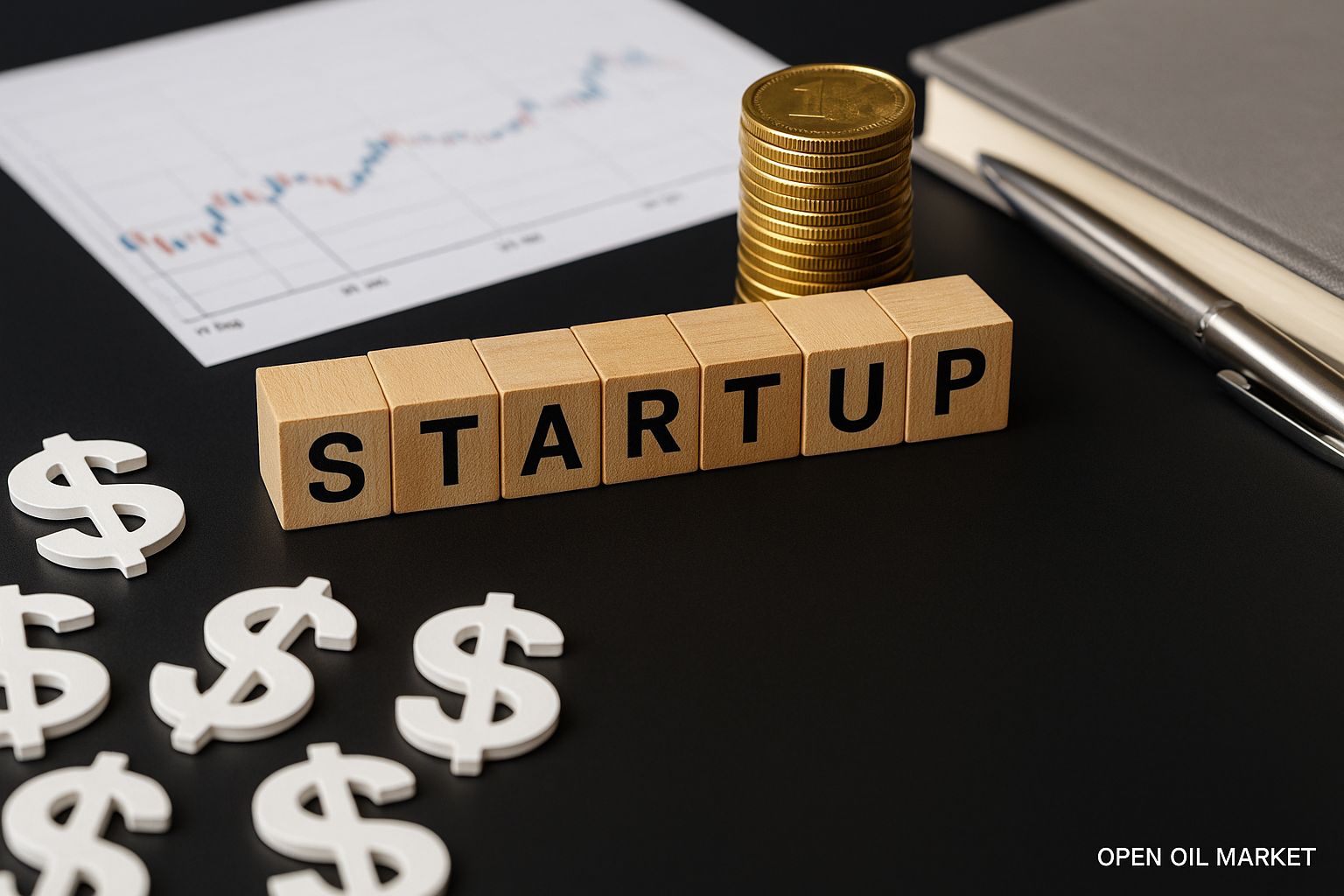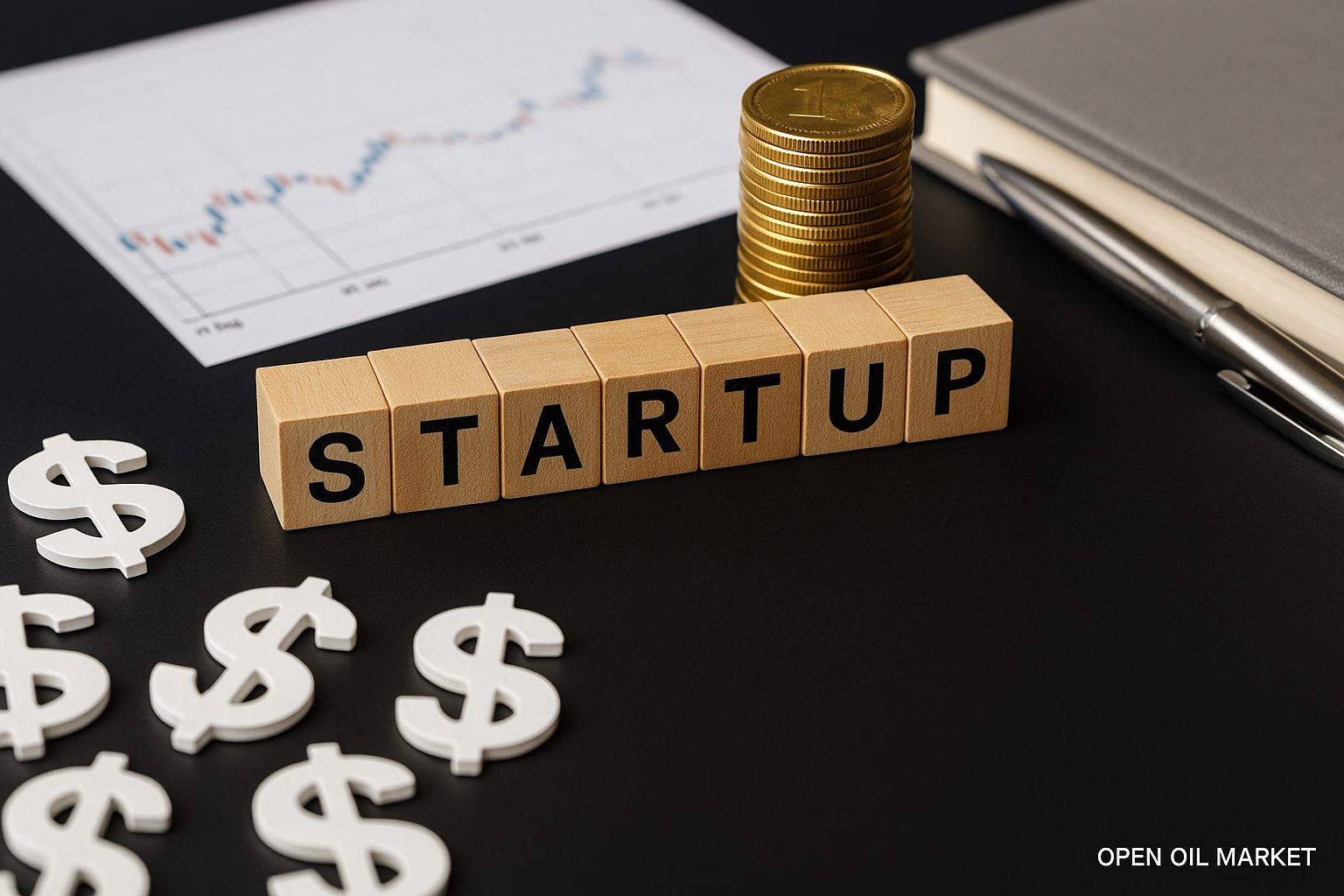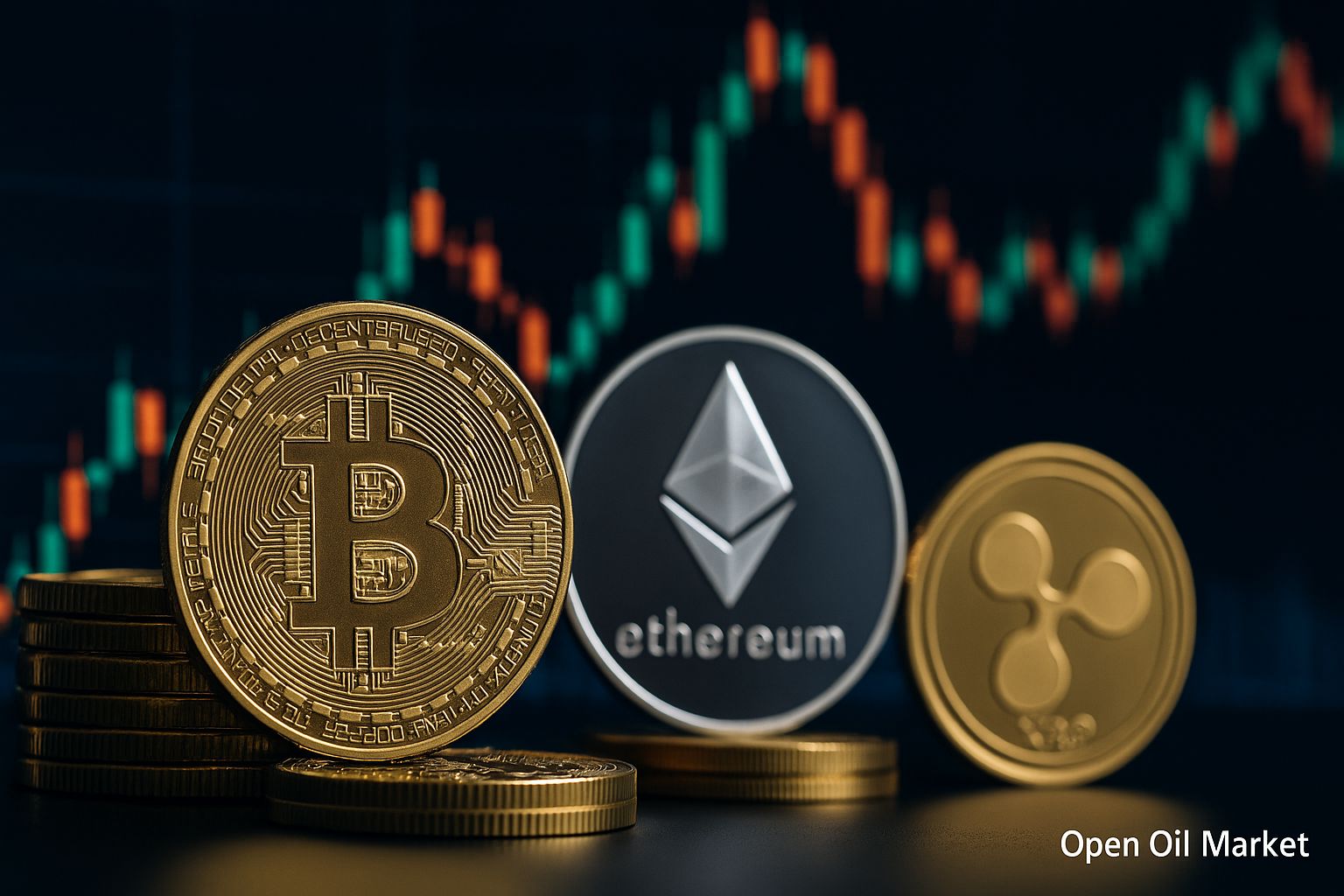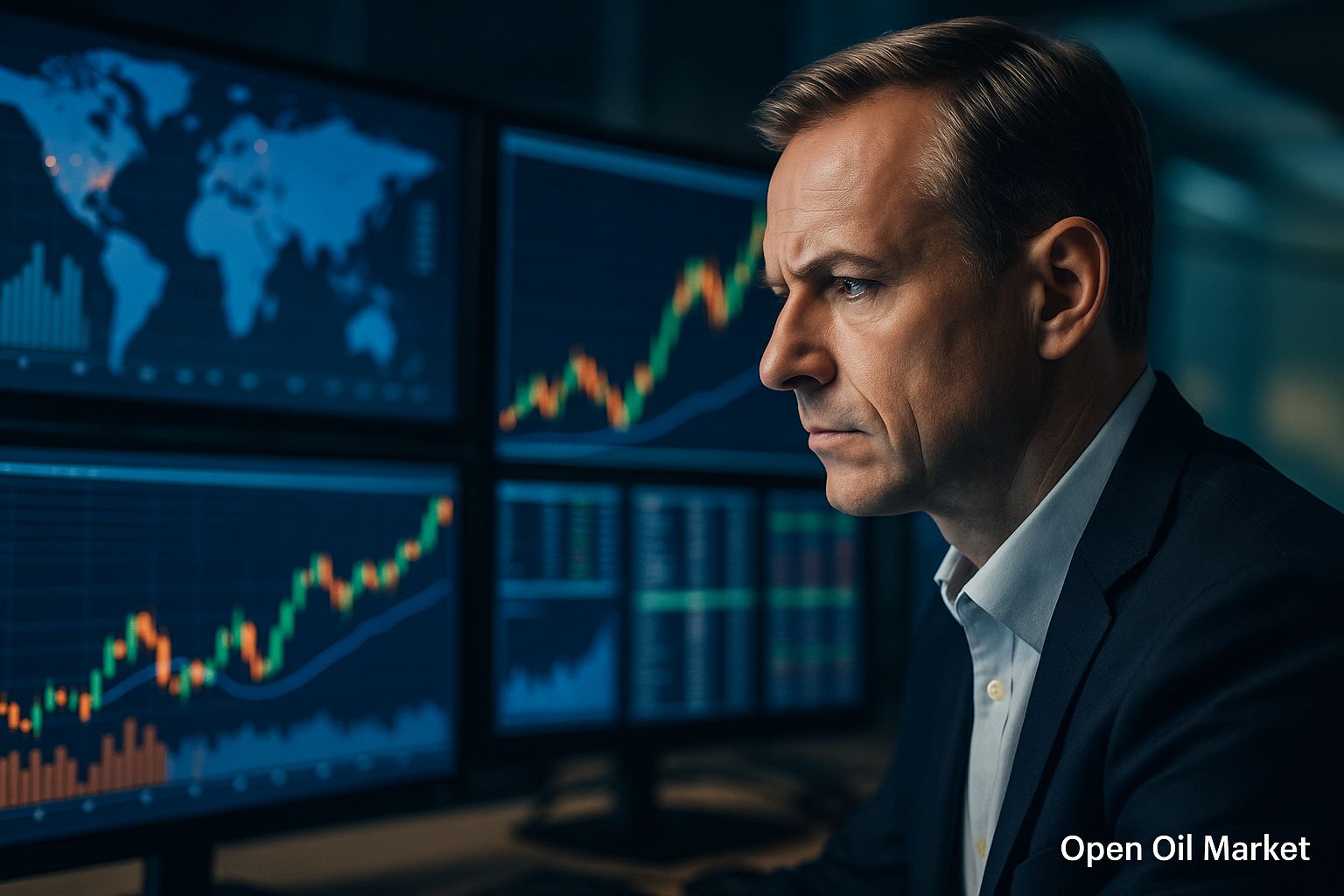
Current Startup and Venture Capital News as of August 31, 2025: Record AI Rounds, Successful IPOs, M&A Deals, and Global Trends. A Review for Venture Funds and Investors.
By the end of August 2025, the global venture capital market is confidently emerging from a prolonged downturn and demonstrating a new uptrend. Investors worldwide are actively financing technology startups once again, multi-million dollar deals are being struck, and the plans for promising companies to go public are back in the spotlight. Major venture funds and corporations are re-entering the scene with record-sized investment programs, while governments across various countries are expanding their support measures for innovative businesses. Private capital is actively flowing into the startup ecosystem, providing young companies with the liquidity needed for growth and scaling.
Venture capital activity is sweeping across all regions of the globe. The United States continues to lead the way, especially due to investments in the artificial intelligence sector. Meanwhile, the Middle East has seen its startup investment volume double compared to last year, and in Europe, there has been a shift with Germany surpassing the UK in venture deal volume, strengthening the positions of continental hubs. India, Southeast Asia, and other rapidly developing markets are attracting record capital amid relative investor caution in China due to regulatory risks. The startup ecosystems in Russia and the CIS countries are also striving to keep pace, despite external limitations. This is indicative of a new global venture boom: investors have returned to the market, though they are still approaching deals selectively and cautiously.
Let's take a closer look at the key trends and news shaping the agenda as of August 31, 2025:
- The return of megafunds and large investors. Leading players are forming unprecedentedly large venture funds and increasing their investments, once again saturating the market with capital and reigniting risk appetite.
- Megaarounds of funding and new "unicorns" in the AI sphere. Huge investments are driving startup valuations to unprecedented heights, particularly in the artificial intelligence segment.
- Revival of the IPO market. Successful public offerings of technology companies and new applications confirm that the long-awaited "window of opportunity" for exits has reopened.
- Renaissance of crypto startups. The rise of the digital asset market has revived interest in blockchain projects, increasing the inflow of capital into the crypto industry.
- Defense technologies and robotics are attracting capital. Geopolitical factors are stimulating investments in military developments, aerospace projects, and robotics systems.
- Industry focus diversification. Venture capital is directed not only toward AI but also into fintech, climate projects, biotechnology, and other sectors, broadening market horizons.
- A wave of consolidation: growth in M&A deals. Large mergers, acquisitions, and strategic alliances are reshaping the industry landscape, creating new opportunities for exits and accelerated company growth.
- Global expansion of venture capital. The investment boom is covering new regions—from the Gulf and South Asia to Africa and Latin America—forming new technology hubs.
- Local focus: Russia and the CIS. Despite limitations, new funds and projects are emerging in the region, signaling a gradual recovery of the venture ecosystem.
The Return of Megafunds and the Influx of "Big Money"
The largest venture players are triumphantly returning to the market, signaling a renewal of risk appetite. The Japanese conglomerate SoftBank is launching its third Vision Fund, with a volume of around $40 billion, targeting advanced technologies (with a focus on AI and robotics) after a pause. The well-known Silicon Valley firm Andreessen Horowitz (a16z) is forming its "megafund" with a magnitude of approximately $20 billion, aimed at investing in late-stage American startups. Simultaneously, sovereign funds from Gulf countries are becoming more active: the governments of the UAE, Saudi Arabia, and other Middle Eastern states are pouring billions of dollars into technology projects worldwide, alongside developing their own mega-programs to support local startup ecosystems.
Leading investors currently have unprecedented reserves of uninvested capital ("dry powder"): in the United States alone, over $300 billion is available for investment as market confidence rises. The influx of such "big money" saturates the startup ecosystem with liquidity, intensifying competition for the best deals while simultaneously reinforcing confidence in the continued flow of capital and support for promising innovations. The return of megafunds and large institutional investors indicates that the market is once again ready to finance the ambitious scale of startups.
Megaround Funding and a New Wave of "Unicorns"
In 2025, investments in the artificial intelligence sector have reached unprecedented scales. It is estimated that since the beginning of the year, AI startups have collectively raised over $120 billion—about half of all global venture financing, surpassing the total for the entire year of 2024. Investors worldwide are eager to invest in the most promising AI projects, resulting in multi-billion dollar deals and sharp increases in company valuations. Some of the largest recent funding rounds include:
- OpenAI (USA)—raised a record $40 billion from a consortium led by SoftBank and Microsoft; this deal became one of the largest in the history of the technology sector.
- Anthropic (USA)—is close to closing a round of approximately $5 billion at a valuation of about $170 billion; the developer of "safe AI" has already become one of the world's most valuable startups.
- Scale AI (USA)—secured $14.3 billion in funding from Meta and partners to scale its data processing and AI model training platform.
- xAI (USA)—the new AI startup founded by Elon Musk raised around $5 billion (the round was led by SpaceX), demonstrating corporate investors' interest in promising industry players.
- Databricks (USA)—signed an agreement to raise approximately $1 billion in the Series K round at a valuation exceeding $100 billion, cementing its status as one of the most valuable private AI developers globally.
These impressive megaround fundings reflect a massive investor appetite for the AI space. Capital is flooding into the development of large language models, generative AI, robotics, and related technologies that can radically transform entire industries. The valuations of sector leaders have risen exponentially in a short time, and competition among funds for promising AI projects has reached a critical intensity.
The IPO Market Comes Alive
After a prolonged pause, technology companies are once again successfully going public. The year 2025 has been marked by a series of successful IPOs, which are renewing optimism among venture investors about the prospects of exiting their investments. Since the beginning of the year, there have already been around 225 IPOs on American exchanges—approximately 85% more than during the same period in 2024, indicating a remarkable revival of the market. Among the largest recent public offerings:
- Figma (USA)—the cloud design software developer debuted on the NYSE with a valuation of about $18 billion; high investor demand allowed shares to be placed above the forecast range and ensured significant price growth on the first trading day.
- Circle (USA)—the issuer of the USDC stablecoin underwent a long-awaited listing in June; the company's market capitalization now exceeds $40 billion, and shares have risen more than 5 times from the IPO price.
- CoreWeave (USA)—the provider of cloud infrastructure for AI successfully went public in the spring (valuation of approx. $30 billion) and achieved a market cap of around $52 billion by the end of summer, more than doubling its share price amid high demand for AI resources.
The success of these debuts restores faith in the public market as an "exit" mechanism for venture projects. As they observe the rising stock prices of new issuers, many late-stage startups are revisiting IPOs as a viable growth option, preferring it over subsequent private funding rounds. Currently, a queue of companies eager to take advantage of the opening "window" is forming: next months are expected to witness IPOs from startups across various sectors (including the crypto industry), aiming to solidify their success on the stock market.
Crypto Startups Experience a Renaissance
The rise of the cryptocurrency market in 2025 has led to a revival of investor interest in blockchain startups and fintech projects related to digital assets. Bitcoin has come very close to its historical high (around $120,000), instilling optimism in the industry and marking the beginning of a new "crypto spring" after a prolonged winter. Against this backdrop, several major players in the market are stepping out of the shadows once more:
- Gemini—founded by the Winklevoss twins, the cryptocurrency exchange has filed a confidential IPO application, aiming to raise capital for international expansion.
- BitGo—the American provider of digital asset custody services is targeting a public market debut, benefiting from the growing demand among institutional investors for crypto infrastructure.
In the private sector, venture funding for blockchain projects is gradually reviving compared to the "crypto winter" of previous years. Investors are once again willing to take risks in the realms of DeFi, crypto exchanges, and Web3 infrastructure, anticipating greater regulatory clarity and mass adoption of crypto technologies. Although deal volumes in this segment still lag behind the records set in 2021, a clear trend of recovery has emerged. New funds focused on digital assets are sprouting up, and successful IPOs of relevant companies are likely to attract even more capital into the industry.
Defense Technologies and Robotics Attract Capital
The geopolitical landscape and technological breakthroughs are stimulating an increase in investment in defense, aerospace, and robotics sectors. Startups developing solutions for security and military applications are receiving funding not only from private venture funds but also with support from government programs. Some notable deals in this direction include:
- Anduril (USA)—a developer of AI-based defense systems raised around $2.5 billion to expand production of autonomous drone platforms and surveillance systems. This round marked one of the largest of the year, showcasing investor confidence in next-generation military technologies.
- Stark (Germany)—a startup developing autonomous strike drones received $62 million (the round was led by Sequoia Capital with participation from NATO Innovation Fund and others) at a company valuation of approximately $500 million. The participation of NATO and strategic investors emphasizes the importance of drone systems in today’s market.
In addition to purely military projects, venture investments are also directed toward adjacent fields: the creation of humanoid robots, cybersecurity, and space technologies. For example, the American startup Figure AI recently secured around $1.5 billion for the development of humanoid robotic platforms. There remains strong investor interest in satellite constellations and commercial space launches. Long-term security needs make defense technologies one of the fastest-growing areas in venture capital.
Diversification: Fintech, Climate Projects, and Biotech
Despite the dominance of AI in the agenda, venture investors are actively exploring other sectors, diversifying their portfolios. In the fintech sector, there is a rebound following a downturn: large fintech companies are once again attracting significant funds, and collaborations with traditional financial institutions are intensifying. For instance, Swedish BNPL giant Klarna struck a partnership deal worth $26 billion to accelerate growth in the U.S. market, signaling sustained appetite for fintech unicorns. Numerous neobanks and payment platforms around the world are also successfully raising growth rounds, indicating a return of investor confidence in fintech.
Climate and environmental technologies remain in focus due to government programs and business demand for sustainable development. Venture funds and corporate players are investing in projects in renewable energy, energy storage, electric vehicles, and waste recycling. For example, European fund Cathay Innovation raised $1 billion in August to invest in climate and AI initiatives, while startups in nuclear energy and hydrogen technologies are closing rounds in the hundreds of millions (e.g., the American Aalo Atomics secured $100 million for micro-reactors for data centers).
The biotech boom continues as well. Advances in medicine (ranging from innovative drugs to genetic research) are stimulating venture investments in biotech and healthcare. Startups developing new therapies (e.g., for obesity or aging) are attracting significant rounds, and some biotech companies are successfully going public. At the beginning of the year, several biotech IPOs saw multiple increases in stock value after listing. Investors see great potential in the intersection of biotechnology with AI and data, opening new horizons for growth. Overall, the diversification of industry focus signifies that venture capital is actively exploring adjacent sectors to AI—from finance and environmental sustainability to medicine and industry—mitigating risks and covering a broader spectrum of innovations.
A Wave of Consolidation and M&A Deals
Alongside the investment boom, activity in the mergers and acquisitions market is on the rise. High valuations of startups and fierce competition for new markets are pushing the industry toward consolidation. Large M&A deals are again coming to the forefront, reshaping the power dynamics in the technology sector. For example:
- Google + Wiz—Google has agreed to acquire the Israeli cloud cybersecurity startup Wiz for approximately $32 billion. This record amount for the Israeli industry signals the willingness of tech giants to spend colossal sums on key cyber technologies.
- SoftBank + Ampere—SoftBank plans to acquire American processor developer Ampere for approximately $6.2 billion; this deal could become one of the largest of the year in the semiconductor segment and strengthen SoftBank's position in the chip industry.
Such megadeals demonstrate the desire of tech giants to secure cutting-edge developments and strong teams. The activation in the sphere of acquisitions and strategic investments indicates the maturity of the market: successful late-stage startups are either merging with each other or becoming targets for corporations, while venture investors are obtaining long-awaited opportunities for profitable exits. The wave of consolidation promises accelerated growth for the most promising companies and brings substantial capital back into play within the venture ecosystem. The trend toward consolidation is expected to continue in the coming quarters, especially in segments marked by overheated competition or those requiring significant resources for growth.
Global Expansion of Venture Capital
The venture boom of 2025 is characterized by an increasingly broad geography. Beyond traditional hubs (the U.S., Western Europe, China), the influx of capital is intensifying in new markets worldwide. In the Middle East, Gulf countries are directing record amounts of funding to startups through sovereign funds, creating regional tech hubs in the UAE and Saudi Arabia. South Asia continues to see rapid growth in Indian and Southeast Asian ecosystems that attract unprecedented levels of investment. Africa is also making a name for itself: the successes of startups from Nigeria, Egypt, Kenya, and other countries are attracting global funds' attention to the African market.
- MENA (Middle East): startups in the region raised approximately $2 billion in the first half of 2025 (+130% compared to the previous year); the UAE and Saudi Arabia made significant contributions by launching several megaround investments and new funds.
- Africa: funding for African startups reached ~$1.3 billion in the first 6 months of 2025 (an ~80% year-on-year growth); record deals took place in Nigeria, Egypt, and South Africa, drawing attention to local fintech and agri-tech projects.
- Latin America: venture investments in the region grew by 15-20% in Q2 2025 (quarter-on-quarter); for the first time since 2012, Mexico surpassed Brazil in terms of investment volume, driven by large fintech rounds (e.g., the Mexican startup Klar raised $170 million).
In Europe, Germany, France, and Scandinavian countries are strengthening their positions, while in the UK, post-Brexit, the growth pace of venture investments has noticeably slowed. In Asia, the situation is mixed: while activity in China declines, state support for strategic technologies stimulates targeted investments, and in India, Southeast Asia, and Israel, deal volumes remain at record highs. Thus, the global startup ecosystem is becoming more distributed: beyond Silicon Valley and China, new innovation centers are gaining strength in different corners of the world. For investors, this translates into expanded opportunities—promising projects could emerge anywhere, from Dubai and Bangalore to Nairobi or Mexico City.
Russia and the CIS: Adaptation and New Opportunities
The Russian venture market, which has endured several challenging years, is gradually emerging from its "venture winter" and adapting to the new conditions. Despite international restrictions and capital outflows, signs of stabilization began to emerge as early as 2024, and by the end of 2025, market participants are expecting further rejuvenation. Domestic investors are launching new funds and initiatives aimed at supporting local projects, while many Russian founders are seeking success abroad. Some examples of current trends include:
- Kama Flow—a venture investment company announced in the spring the launch of a new venture fund worth 10 billion rubles, focused on funding science-intensive late-stage startups. This is one of the largest venture funds established in recent years in the country, aimed at filling the gap of large capital in the local market.
- Qummy—a Krasnodar-based food tech startup raised approximately 440 million rubles from a group of private investors at a valuation of around 2.4 billion rubles. This round indicates a return of interest from local venture funds and banks in promising projects in the domestic market.
- Plata—a fintech startup founded by former top managers of "Tinkoff" reached a valuation of ~$3.3 billion in the international market. The company, which is developing a digital banking business in Latin America, is preparing for a new round at a valuation more than double that of the previous year and has already secured banking licenses in Mexico and Colombia. This case displays that teams from Russia can build globally competitive "unicorns" even under constraints in the domestic market.
Overall, the venture ecosystem in the CIS countries is undergoing a restructuring phase: the focus is shifting towards projects in IT, artificial intelligence, import substitution, and B2B services for large businesses. Experts note that the local market is gradually adapting to new realities. The most resilient teams continue to secure funding, and new deals are being made even at the seed stage. As the economy stabilizes and the development of internal support institutions for innovations progresses, venture investments in the region stand a chance for sequential growth and closer integration into global trends.
OpenOilMarket is a comprehensive digital platform that brings together suppliers, buyers, carriers, and financial partners.




